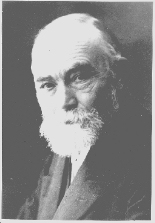Click here and press the right key for the next slide (or swipe left)
also ...
Press the left key to go backwards (or swipe right)
Press n to toggle whether notes are shown (or add '?notes' to the url before the #)
Press m or double tap to slide thumbnails (menu)
Press ? at any time to show the keyboard shortcuts
Sense


Samantha Caine
Suburban homemaker and the ideal mom to her 8 year old daughter Caitlin. She lives in a New England small town, teaches in a local school and makes the best Rice Krispie treats in town.


Charly Baltimore
a highly trained secret agent and cold-blooded killer involved in the government's most unscrupulous affairs.
‘Charly is Charly.’
‘Charly is Samantha.’


‘What is stated in the proposition ‘Charly is Samantha’ is certainly not the same thing as the content of the proposition ‘Charly is Charly’.
‘Logic makes me die inside’
‘You have to turn your headlamps on
when it’s raining in Sweden.’
‘the core of a sentence’s meaning is its truth condition; that is, the property of a sentence which, together with the world, makes it true or false.’
Devitt and Sterelny, 1999 p. 11
But what are utterances?
sentence
Is timeless.
Can be uttered by different people.
Is a structure of words.
Cannot express a proposition (strictly speaking).
utterance
Has a date.
Has a particular utterer or utterers.
Is a structure of events.
Can express a proposition.
But what are propositions?
Propositions
... are the things that can be true or false;
... and the things that utterances characteristcally express.


‘What is stated in the proposition ‘Charly is Samantha’ is certainly not the same thing as the content of the proposition ‘Charly is Charly’.
Now if what corresponded to the name ‘Samantha’ as part of the thought proposition was the reference of the name and hence the woman herself, then this would be the same in both thoughts propositions.
The thought proposition expressed in ‘Charly is Samantha’ would have to coincide with the one in ‘Charly is Charly’, which is far from being the case’
Frege, 1892[1993] p. 44


Charly Baltimore lives in New England
Samantha Caine lives in New England
‘Someone who takes the latter to be true need not … take the former to be true
‘An object can be determined thought of in different ways, and every one of these ways of determining thinking of it can give rise to a special name, and these different names have different senses’
‘for it is not self-evident that it is the same object which is being determined thought of in different ways’
Frege, 1892[1993] p. 44
What are senses? Answer 1
Contrast that utterance of ‘Charly is Charly’ with the utterance ‘Charly is Samantha’
ftbe: These may differ in informativeness.
idea: This difference is due to some difference in the meanings of the words ‘Charly’ and ‘Samantha’.
Terminology: call whatever attribute of words explains the difference ‘sense’.
observation: There could be no such difference if meaning were reference.
conclusion: Sense and reference are distinct.
What is the meaning of ‘Earth’?
Simple idea: ‘Earth’ means Earth.
The meaning of a word is the thing it refers to.
Q2. Is there anything meanings are needed to explain which we cannot explain if we take this view of them?
Yes! Frege’s puzzle about Charly/Samantha (=Superman/Clarke Kent).
Complex idea: The meaning of a word is its sense.
What are senses? Answer 2

‘Frege’s idea was that to understand an expression, one must not merely think of the reference that it is the reference, but that one must, in so thinking, think of the reference in a particular way.
The way in which one must think of the reference of an expression in order to understand it is that expression’s sense’
Evans, 1981 [1985]: 294
What are senses? (Answer 2)
The sense of a word is ‘the way in which one must think of the reference of [it] in order to understand it’.
What are senses? Answer 3
Andrea is in her office speaking on the telephone to her friend Ben. As she looks out of the window, Andrea notices a man on the street below using his mobile phone. He’s not looking where he’s going; he’s about to step out in front of a bus. Andrea does not realise that this man is Ben, the friend she is speaking to. She bangs the window and waves frantically in an attempt to warn the man, but says nothing into the phone.
adapted from Richard, 1983 p. 439

He [‘the man on the street’] is in danger.
∴ He [‘the man I am speaking with’] is in danger.
valid-1 = the premises cannot be true unless the conclusion is true
valid-2 = knowledge of the premises suffices for knowledge of the conclusion
[Answer 3] Sense is that which determines whether
such inferences are valid-2
(Campbell, 1992).